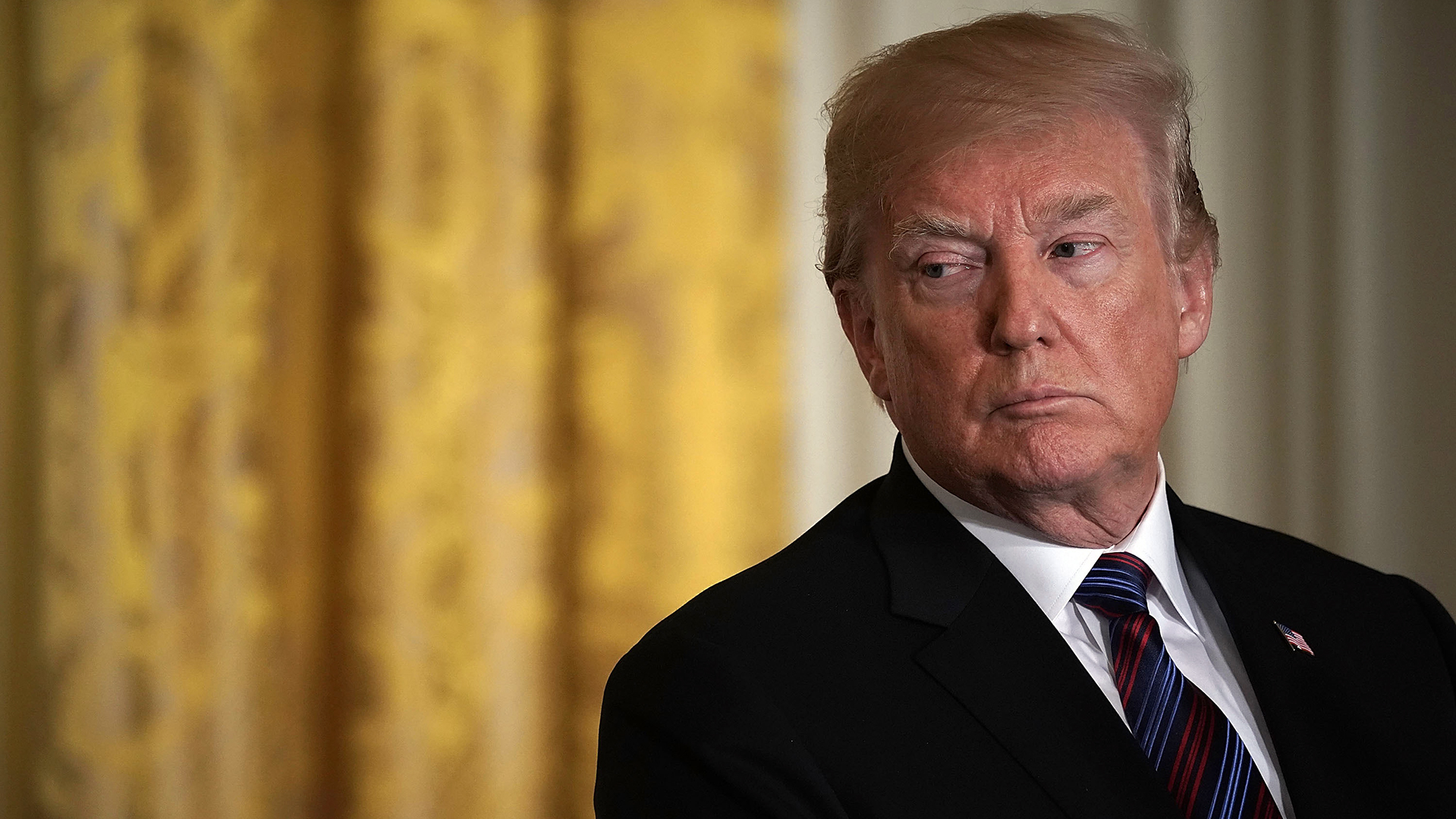
Former President Donald Trump stood by his broad claims of immunity against January 6-related lawsuits brought against him by police officers and congressional Democrats in a Thursday court filing with a federal appeals court.
The Justice Department has argued that Trump cannot be immune in the lawsuits if he was found to have initiated violence, something Trump’s new filing called an “unprecedented specific carve out” to presidential immunity.
Such an exemption to presidential immunity would throw “open the doors for civil claims against a President and create a stricter standard for a President than for ordinary federal officials, who have successfully claimed qualified immunity on far more egregious facts,” Trump’s filing said.
“DOJ’s new carve out is a sui generis rule applied ex post facto that has no underlying principle or explanation beyond ‘we think what President Trump did was bad,’” Trump argued in the new filing. “This is not how the rule of law works.”
The US DC Circuit Court of Appeals is considering whether the former president can be held liable for his conduct in the lead-up to the January 6, 2021, attack on the Capitol in a civil lawsuit brought by US Capitol Police officers and Democratic lawmakers.
Trump argued that even if presidential immunity does not cover conduct that incites violence, his speech at the rally that preceded the riot would still be protected because he ���never instructed the crowd to engage in unlawful activity.”
“President Trump’s use of the word ‘fight’ was clearly metaphorical, referring to a political ‘fight,’ not a literal fistfight or other violent interaction,” his filing said. “For example, he stated, in reference to Rudy Giuliani, ‘He’s got guts. He fights, he fights.’ No reasonable listener would understand that metaphorical statement to suggest that Mr. Giuliani, a 76-year-old man, is getting into fist fights.”
The additional round of briefings was ordered after the DC Circuit heard arguments on the dispute over Trump’s potential immunity.
Those suing Trump over his January 6-related conduct also argued on Thursday that the former president’s sweeping claims of immunity should be rejected. But the lawmakers and police officers took issue with the DOJ’s recommendation that the DC Circuit issue a narrow ruling on presidential immunity that doesn’t say anything more about the immunity’s limits besides an exception for incitement.
The lawmaker and police officers argued that the DC Circuit should draw firmer lines around when a president can be immune for his conduct while he is in office, saying the question of whether Trump is immune in the case shouldn’t turn on whether he initiated private violence, as the DOJ is arguing.
Their filing said that there are non-violent actions Trump could have encouraged about Congress’ certification that would also fall outside the sphere of the “official” responsibilities of a president.
“Urging private citizens to use any means that obstruct Congress from carrying out its constitutional duty to certify a presidential election—a procedure the Framers expressly placed beyond presidential reach—bears no connection to any presidential responsibility,” the lawmakers and police officers said in their Thursday submission.